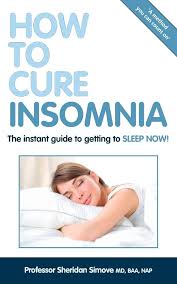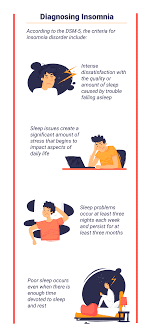Insomnia During Period: Causes and Solutions
For many women, experiencing insomnia during their menstrual period is a common occurrence. The hormonal fluctuations that happen during this time can disrupt the body’s natural sleep patterns, making it difficult to fall asleep or stay asleep throughout the night.
Causes of Insomnia During Period:
Hormonal Changes: The rise and fall of estrogen and progesterone levels during the menstrual cycle can affect the quality of sleep. These hormonal fluctuations can lead to increased anxiety, mood swings, and restlessness, all of which contribute to insomnia.
Pain and Discomfort: Menstrual cramps, bloating, and other physical discomforts associated with periods can make it challenging to get comfortable enough to sleep peacefully.
Solutions for Managing Insomnia During Period:
Establish a Relaxing Bedtime Routine: Engage in calming activities before bed, such as reading a book, taking a warm bath, or practicing relaxation techniques like deep breathing or meditation.
Create a Comfortable Sleep Environment: Ensure your bedroom is conducive to sleep by keeping it dark, quiet, and at a comfortable temperature. Invest in a supportive mattress and pillows to alleviate any physical discomforts.
Manage Pain: Over-the-counter pain relievers or heat therapy can help alleviate menstrual cramps and other physical pains that may be keeping you awake at night.
Avoid Stimulants: Limit your consumption of caffeine and alcohol close to bedtime as they can disrupt your sleep patterns even further.
Consult with a Healthcare Provider: If insomnia during your period persists despite trying various strategies, consider speaking with your healthcare provider. They may be able to recommend additional treatments or interventions to help you get better sleep.
By understanding the causes of insomnia during your period and implementing effective solutions, you can improve the quality of your sleep and overall well-being during this time of the month.
9 Surprising Benefits of Insomnia During Your Period
- Increased awareness of hormonal fluctuations
- Opportunity to develop calming bedtime routines
- Heightened focus on creating a comfortable sleep environment
- Encouragement to address and manage physical discomforts
- Recognition of the importance of managing stress and anxiety levels
- Motivation to explore natural remedies for better sleep
- Potential for improved self-care practices during menstruation
- Greater understanding of the impact of caffeine and alcohol on sleep quality
- Opportunity to seek professional guidance for persistent insomnia issues
7 Ways Insomnia During Your Period Can Impact Your Health and Well-being
- Disrupted sleep can lead to fatigue and decreased energy levels during the day.
- Insomnia during period may exacerbate mood swings and emotional instability.
- Poor quality sleep can impair cognitive function, affecting concentration and decision-making.
- Increased irritability and sensitivity to stress are common consequences of insomnia during period.
- Insufficient rest can worsen physical discomforts like menstrual cramps and bloating.
- Chronic insomnia during period may contribute to long-term health issues such as cardiovascular problems.
- Sleep deprivation can weaken the immune system, making you more susceptible to illnesses.
Increased awareness of hormonal fluctuations
Experiencing insomnia during your period can actually offer a unique benefit of increased awareness of hormonal fluctuations. The disrupted sleep patterns may prompt you to pay closer attention to your body’s natural rhythms and the impact of hormonal changes on your sleep quality. By recognizing how your menstrual cycle affects your ability to sleep, you can gain valuable insights into your body’s needs and potentially make adjustments to improve your overall well-being and sleep habits throughout the month.
Opportunity to develop calming bedtime routines
Experiencing insomnia during your period can present an opportunity to develop calming bedtime routines that promote relaxation and better sleep habits. By incorporating activities like reading a book, taking a warm bath, practicing deep breathing exercises, or meditation before bed, you can create a soothing environment that signals to your body it’s time to unwind and prepare for rest. These calming bedtime rituals not only help alleviate insomnia symptoms but also contribute to overall well-being by reducing stress and promoting a sense of tranquility before sleep.
Heightened focus on creating a comfortable sleep environment
During the menstrual period, one potential benefit of experiencing insomnia is the heightened focus on creating a comfortable sleep environment. When faced with difficulties falling or staying asleep, individuals may pay closer attention to factors that can enhance their sleep quality, such as adjusting room temperature, investing in supportive bedding, incorporating calming bedtime routines, and eliminating distractions. This increased awareness and effort toward optimizing the sleep environment can lead to long-term improvements in overall sleep hygiene and contribute to better rest and well-being beyond the menstrual cycle.
Encouragement to address and manage physical discomforts
Insomnia during the period can serve as an encouragement for individuals to address and manage physical discomforts associated with menstruation. The sleep disturbances experienced during this time may prompt individuals to seek out strategies to alleviate menstrual cramps, bloating, and other physical pains that can disrupt their rest. By proactively managing these discomforts, individuals not only improve their chances of getting better sleep but also enhance their overall well-being and quality of life during the menstrual period.
Recognition of the importance of managing stress and anxiety levels
An important pro of experiencing insomnia during the period is that it highlights the significance of managing stress and anxiety levels. The sleep disturbances that occur during this time can serve as a signal to pay closer attention to one’s mental and emotional well-being. By recognizing the impact of stress and anxiety on sleep quality, individuals are encouraged to prioritize self-care practices such as relaxation techniques, mindfulness, and seeking support to better manage their overall mental health. This heightened awareness can lead to long-term benefits in promoting emotional resilience and improving sleep patterns beyond the menstrual cycle.
Motivation to explore natural remedies for better sleep
Experiencing insomnia during your period can serve as a motivation to explore natural remedies for better sleep. The disruption in your sleep patterns during this time may prompt you to seek out holistic approaches to improve your sleep quality, such as herbal teas, relaxation techniques, or lifestyle adjustments. This newfound focus on finding natural solutions not only addresses the immediate issue of insomnia but also encourages a deeper understanding of your body’s needs and how to support them naturally.
Potential for improved self-care practices during menstruation
One potential benefit of experiencing insomnia during your period is the opportunity it provides for enhancing self-care practices during menstruation. When sleep is elusive, it can serve as a reminder to prioritize self-care and focus on nurturing your body and mind. This could involve engaging in relaxation techniques, practicing mindfulness, taking soothing baths, or dedicating time to gentle exercises like yoga. By embracing self-care rituals during this time, you can not only address the challenges of insomnia but also cultivate a deeper sense of well-being and connection with yourself.
Greater understanding of the impact of caffeine and alcohol on sleep quality
An unexpected advantage of experiencing insomnia during your period is gaining a greater understanding of how caffeine and alcohol can affect the quality of your sleep. As you navigate the challenges of restless nights, you may become more attuned to the impact that stimulants like caffeine and alcohol have on your ability to fall asleep and stay asleep. This heightened awareness can empower you to make informed choices about your consumption habits, leading to improved sleep hygiene and overall well-being in the long run.
Opportunity to seek professional guidance for persistent insomnia issues
An important pro of experiencing insomnia during your period is that it can serve as an opportunity to seek professional guidance for persistent sleep issues. While temporary sleep disturbances may be common during menstruation, persistent insomnia can have a significant impact on your overall health and well-being. By recognizing the pattern of insomnia during your period and seeking help from healthcare providers or sleep specialists, you can address underlying causes, receive tailored treatment options, and develop effective strategies to improve your sleep quality not only during your menstrual cycle but also throughout the rest of the month.
Disrupted sleep can lead to fatigue and decreased energy levels during the day.
One significant drawback of experiencing insomnia during your period is the potential for disrupted sleep to result in fatigue and decreased energy levels throughout the day. When you are unable to get sufficient rest due to insomnia, it can leave you feeling drained, lethargic, and lacking the vitality needed to tackle daily tasks and responsibilities. This persistent fatigue can impact your productivity, mood, and overall quality of life, making it crucial to address and manage insomnia effectively to maintain optimal energy levels during this challenging time.
Insomnia during period may exacerbate mood swings and emotional instability.
Insomnia during the menstrual period can worsen mood swings and emotional instability. The lack of adequate sleep can amplify feelings of irritability, anxiety, and sadness that are already heightened during this time due to hormonal fluctuations. When sleep is disrupted, it becomes more challenging for individuals to regulate their emotions effectively, leading to a greater sense of emotional vulnerability and difficulty in coping with daily stressors. Addressing insomnia during the period is crucial not only for improving sleep quality but also for managing emotional well-being and overall mental health during this sensitive time of the month.
Poor quality sleep can impair cognitive function, affecting concentration and decision-making.
Poor quality sleep due to insomnia during the period can have a significant con on cognitive function. When sleep is disrupted or inadequate, it can impair various cognitive abilities such as concentration and decision-making. Individuals may find it challenging to focus on tasks, retain information, or make sound judgments when they are not well-rested. This can impact daily productivity, performance at work or school, and overall mental clarity during the menstrual period. It is essential to address insomnia issues to ensure optimal cognitive function and well-being.
Increased irritability and sensitivity to stress are common consequences of insomnia during period.
Increased irritability and sensitivity to stress are significant drawbacks of experiencing insomnia during the menstrual period. The lack of quality sleep exacerbates hormonal imbalances and disrupts the body’s natural coping mechanisms, leading to heightened emotional reactivity and difficulty managing stressors. This can not only impact personal relationships but also affect daily functioning and productivity, making it crucial to address and manage insomnia effectively to mitigate these negative consequences.
Insufficient rest can worsen physical discomforts like menstrual cramps and bloating.
Insufficient rest during the menstrual period can exacerbate physical discomforts such as menstrual cramps and bloating. When the body does not get enough restorative sleep, it can lead to increased sensitivity to pain and heightened perception of discomfort. This, in turn, can intensify the severity of menstrual symptoms like cramps and bloating, making them more difficult to manage. Adequate sleep is essential for the body to heal and recover, so prioritizing rest during this time can help alleviate these physical discomforts and improve overall well-being during menstruation.
Chronic insomnia during period may contribute to long-term health issues such as cardiovascular problems.
Chronic insomnia during the menstrual period can have serious long-term consequences, potentially leading to health issues such as cardiovascular problems. Prolonged sleep deprivation and disrupted sleep patterns can put a strain on the heart and increase the risk of developing conditions like high blood pressure, heart disease, and stroke. It is crucial to address and manage insomnia during the period to not only improve immediate well-being but also safeguard long-term cardiovascular health.
Sleep deprivation can weaken the immune system, making you more susceptible to illnesses.
Sleep deprivation caused by insomnia during your period can have a detrimental impact on your immune system, leaving you more vulnerable to illnesses. When the body does not get enough restorative sleep, it can weaken its ability to fight off infections and maintain overall health. This compromised immune system response can increase the risk of falling ill and prolong the recovery process. Prioritizing quality sleep is crucial in supporting a strong immune system and safeguarding your well-being during menstruation.


